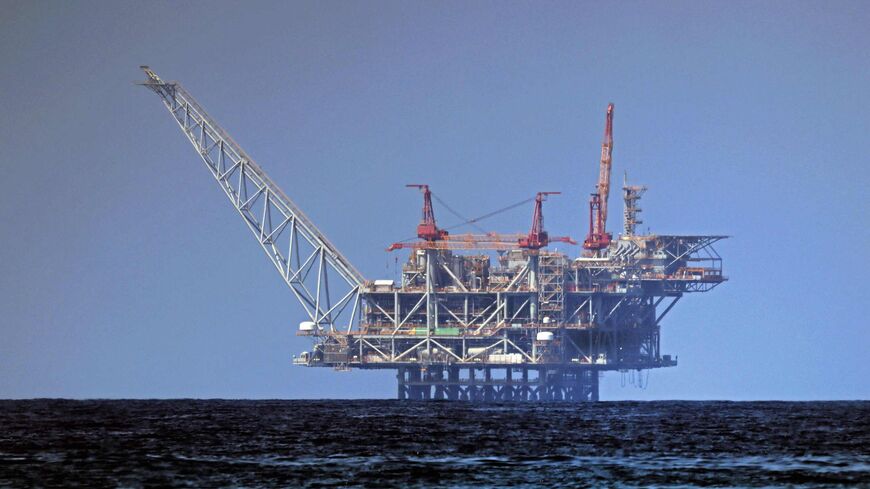The London-based energy firm Energean announced Tuesday that it will start exporting oil from Israel, making the country an oil exporter for the first time.
Energean said it lifted Israeli crude oil from the Karish gas field, which is located in the eastern Mediterranean Sea off the coast of northern Israel. The energy firm said the oil will be “sold into various global markets” via an agreement with the Swiss energy firm Vitol, according to a press release.
What it means: The news was widely covered by Israeli and international media outlets, but some experts said the export is not particularly significant. Elai Rettig, a professor at Bar-Ilan University and researcher at the Begin-Sadat Center, said that gas fields regularly contain small amounts of oil.
“There is oil in every gas field. This is not a significant amount or an economy-changing event. It's a nice profit,” Rettig told Al-Monitor. “It’s not geopolitically significant. It doesn’t make Israel a real oil exporter.”
Energean’s announcement could have public relations value for Israel’s energy sector, however. Israel launched a third round of bids for gas exploration tenders in 2020 but failed to attract major interest. In December 2022, Israel launched a third round. The oil exports could make exploration more attractive to energy companies.
“It’s good public relations,” said Rettig. “Hopefully the fourth round will be better due to the energy crisis in Europe.”
“Israel showed the world that it can cooperate with its neighbors, even one it is technically at war with in Lebanon,” added Rettig, referring to the maritime border agreement Israel and Lebanon reached last year. The deal enabled Lebanon to begin its own gas exploration plans.
Rettig is not alone in his assessment. Simon Henderson, who directs the energy program at the Washington Institute for Near East Affairs, said the Energean announcement does not indicate Israel is on the verge of major oil exports.
“The volume of such oil is expected to increase, but it is a supplementary product of the Karish field that Energean is exploiting,” Henderson told Al-Monitor. “Karish is essentially a gas field with comparatively small reserves which will be fully exploited, i.e., emptied, within a few years.”
Henderson said he does not expect Israel to become a major oil exporter, pointing out that such oil is a byproduct of gas fields.
Know more: Israel’s natural gas industry has taken off since gas was discovered off the Israeli coast in 2009. Israel is now a major gas exporter and exports natural gas to Egypt and Jordan, with plans to soon boost exports to Europe.
Oil was discovered in the Heletz oil field in southern Israel back in 1955. Israel also possessed the Alma oil field in the Sinai Peninsula after capturing the territory from Egypt during the 1967 war. Israel gave the field back to Egypt in 1979 when the two countries signed a peace treaty.
The Alma field was producing at least 32,000 barrels a day at the time, and this was more than 20% of Israel’s oil needs, according to a 1979 report from The Washington Post.
Israel is now dependent on imports for its oil needs. However, the country does export refined oil by importing crude oil and then refining it. Israel has a refinery in Haifa in the north and another in Ashdod in the south with a combined capacity of 300,000 barrels per day, according to the US Energy Information Administration.








